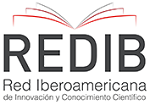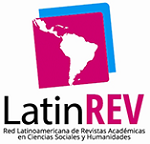Sustainable investments: agroecoturism.
DOI:
https://doi.org/10.15649/2346030X.687Keywords:
agrotourism, investment, sustainable, green business.Abstract
Rural tourism is a practice aimed at people who like contact with nature; it includes various activities where tourists, in addition to resting, experience new situations such as staying in country houses, enjoying the agricultural or forestry part and sharing the customs of the inhabitants of these places. The objective of the project is to analyze the natural tourist resources of the Urengue Rujas village, which belongs to the municipality of Chinácota, in order to reveal the importance and viability of productive and commercial activities in a natural environment with the least possible environmental impact. To do this, it is based on the theory of green economy where the trend is towards environmental sustainability and recommends strategies that mean savings and viability for businesses. The research was of a descriptive type, and various aspects were characterized, which make up the design of an investment project. A diagnosis of the sector is presented, which allowed to establish the characteristics of the target market, and to identify its competences. The results showed that it is remarkable to propose actions that promote the creation of new agro-tourism projects, generating ideas and confronting them in order to later consolidate the project. Finally, there is an effective market interested in agro-ecotourism projects in the municipality under study, which will encourage tourism, create ecological awareness and strengthen the economy by creating sources of employment in sustainable investments. With the implementation of an agroecotourism project, the region will be able to recover and become sustainable in the economic, social and environmental spheres, through the synergy between conservation and sustainable production as a development strategy.
References
A. Agudelo-Morato, D. Ramirez-Gomez y V. Londoño-Valencia, “Plan de negocios para una empresa de ecoturismo y aventura en el municipio de San Francisco Antioquia”, 2015. Obtenido de Repositorio Uniminuto: https://repository.uniminuto.edu/bitstream/handle/10656/5596/TEGP_AgudeloMoratoAstridElena_2015.pdf?sequence=1
L. Angulo-Aguirre, “Proyectos: Formulación y evaluación”, Lima, Perú, 2016.
N.L. Bringas-Rábago y L. Ojeda-Revah, “El ecoturismo: ¿una nueva modalidad de turismo de masas? Economía, Sociedad y Territorio”, 2(7), 373-403, 2000. Recuperado el 27 de Junio de 2018, de http://www.redalyc.org/pdf/111/11100701.pdf
M.B. Cifuentes-Arias, C.A. Mesquita, J. Méndez, M.E. Morales, N. Aguilar, D. Cancino y M. Turcios, “Capacidad de Carga Turística de las Áreas de Uso Público del Monumento Nacional Guayabo”, Costa Rica, 1999. Obtenido de WWF Centroamérica: https://www.entornoturistico.com/wp-content/uploads/2016/05/Capacidad-de-Carga.-Monumento-Nacional-Guayabo-Costa-Rica.pdf
M. Cifuentes, “Determinación de la capacidad de carga turística en áreas protegidas”. Obtenido de Centro Agronomico Tropical de Investigación y Enseñanza. Costa Rica, 1992.
DANE. “Proyección de población”, Recuperado el 27 de Junio de 2018, de Departamento Administrativo Nacional de Estadisticas, 2018.
G.R, Delaval, “Proyectos de investigacion en ciencias empresariales Cartilla-Guia para estudiantes universitarios”, En diseño metodologico (págs. 53-63), 2016.
J.J. Guerrero-Vargas y J.F. Espinosa-Castro, “Norte de Santander, Colombia. turismo historicocultural, naturaleza y aventura: apuesta estrategica para la proyeccion departamental en el posconflicto”, International Journal of scientific Management and Tourism, 3(1), 145-175, 2017.
M. Gutiérrez, M. Perez-Vazquez, A. Piñar-Alvarez, M. Garcia- Alvarado, J. Cruz y A. Asiain-Hoyos, (16-29 de Mayo-Junio de 2013). Potencial agroecoturistico del estado de Veracruz mediante un Sistema de Información Geografica, 2016.
MINAMBIENTE. “plan nacional de negocios verdes”. Ministerio de Ambiente y Desarrollo Sostenible: 2014.
OCDE. “Hacia el crecimiento verde. Un resumen para los diseñadores de Politicas”, Reunión del Consejo en Nivel Ministerial de la OCDE, Declaración sobre Crecimiento Verde, París, 2011.
ONVS. “¿Que son los negocios verdes?” Oficina de Negocios Verdes y Sostenibles: 2014.
Presidencia de la República, ABC de Colombia en OCDE, 2013.
L. Vallejo-Rico, “marco de referencia para la gestion del ecoturismo en Pereira”, 2010.
G. Armstrong y P. Kotler, “Fundamentos de marketing”, Decimoprimera edición, México: pearson educación, 2013.
J. Arroyave-Osorio y L. López-Idárraga, “Repository UTP. plan de negocio para la creación de un proyecto de turismo especializado en dos fincas ubicadas en la ciudad de Pereira”, 2016.
A.L. Báez y A. Acuña, “guía para las mejores prácticas de ecoturismo en areas protegidas”. Comision Nacional para el Desarrollo de los Pueblos Indigenas, 159, 2013.
J. Botero, “¿Bajo qué criterios se pueden construir negocios verdes?” Obtenido de AISO- Academia de Innovación para la Sostenibilidad, 2016.
K.L. Cordon-Alférez, “plan de manejo ambiental (pma) del turismo ecológico municipal de la laguna del tabacal en el municipio de la vega Cundinamarca”, 2015.
J. Dávila, “Plan de Negocios, Marco Teorico y Perspectiva Estrategica”. Universidad Politecnica de Cataluña: 2009.
E. Diaz, I. Cordeiro, N. Korossy y V. Fragoso-Selva,” determinacion de la capacidad de carga turística”. Estudios y Perspectivas en Turismo, 21, 1630 – 1645, 2012.
O. Gomez-Bernal, “Repository Javeriana. Ecoturismo”, 2012.
M. González, “Portafolio. Ecoturismo genera tres veces más ingresos que el turismo tradicional”, 2017.
H.E. López-Bandera, “diseño del producto turístico de norte de Santander”, informe final – tomo I de II, 2014.
H.E. López-Bandera, “diseño del producto turístico de Norte de Santander”, informe final – tomo II de II, 2014.
J. López-Bonilla y L. López-Bonilla, “La capacidad de carga turística: Revisión crítica de un instrumento de medida de sostenibilidad”, El Periplo Sustentable (15), 123 – 150, 2008.
MINCIT, “Marco Normativo para el Turismo de Naturaleza”, Ministerio de Comercio, Industria y Turismo Dirección de Calidad y Desarrollo Sostenible del Turismo, 2013.
MINCIT. “Oficina de Estudios Economicos”, Boletin Mensual Turismo Agosto 2018.
OMT. “Organización Mundial del Turismo. Entender el turismo”. 2011.
PDM CHINACOTA. “Plan de Desarrollo Municipal de Chinácota- Norte de Santander 2016-2019" construyendo futuro por 2016 – 2019.
Downloads
Published
How to Cite
Issue
Section
Altmetrics
Downloads
License
The journal offers open access under a Creative Commons Attibution License

This work is under license Creative Commons Attribution (CC BY 4.0).












